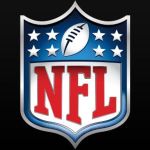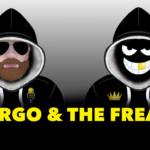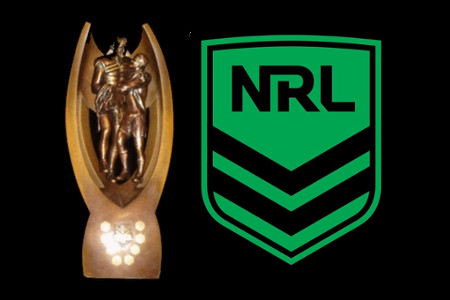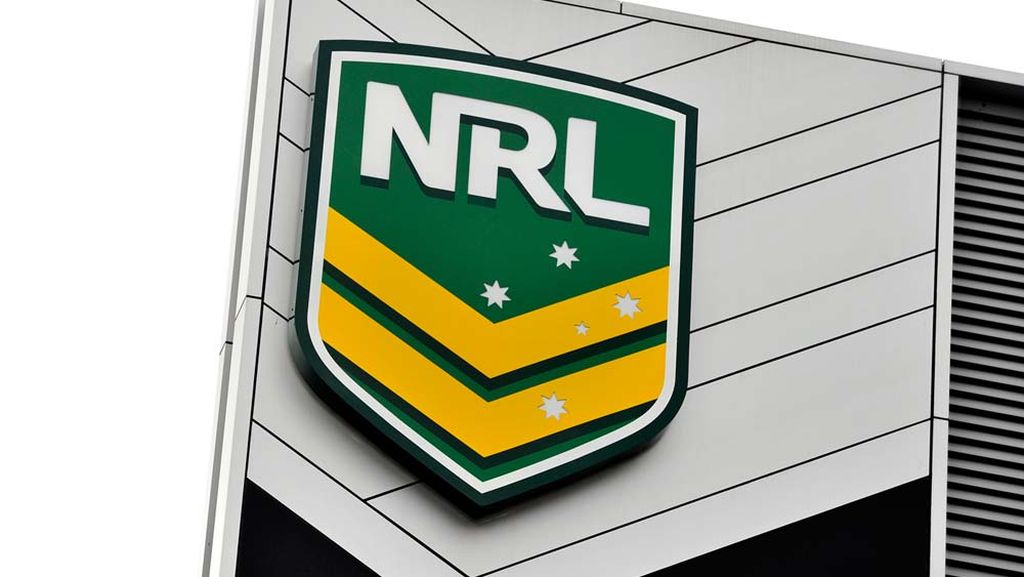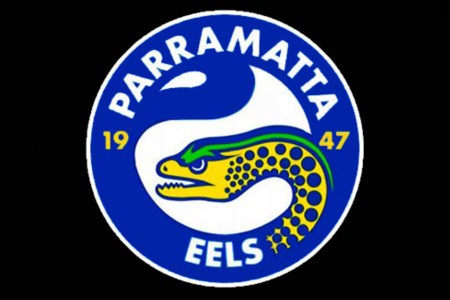From the eye-popping virtuosity of Jonathan Davies to the stupefying mediocrity of Jon Gallagher, countless Rugby Union players have crossed the great divide to Rugby League with varying results. But how well have personalities from other sports fared when entering the blood and thunder of 13-a-side?
Liam Botham – Cricket
Probably the only godson of the great Viv Richards to play Rugby League (and son of Ian for that matter) Liam made his mark in rugby union before switching codes with Leeds Rhinos in 2003. He signed for Wigan the following year and looked on the verge of a major breakthrough in his adopted sport when a neck injury forced to him to retire aged just 27. Prior to playing ‘rugby’, Botham Jnr had played one-season of first-class cricket as an 18-year-old with Hampshire – even taking the wicket of England captain Mike Gatting on his debut – before quitting the sport to avoid comparisons with his father.
Dwain Chambers – Sprinting
Following a fruitless dalliance with american football, Chambers hoped a spell in Rugby League with unfashionable Castleford could help him settle mounting legal bills, however, his oval ball ‘career’ consisted of an unorthodox 39 minute cameo in a specially-arranged ‘A’ team friendly with York. Still, almost 3500 curious fans were provided with an ‘I was there’ moment. He was rubbish.
Darren Clark – 400m
The 400m specialist was a ‘pin-up’ boy of Australian sport during his 80′s halcyon days, winning a Commonwealth Games Gold Medal in between successive fourth place finishes in the 1984 and 1988 Olympics. Clark was persuaded to trade his running spikes for rugby boots by Balmain’s charismatic coach-cum radio presenter Alan Jones in 1991 but never justified the huge initial publicity, despite achieving a modicum of success in the club’s reserve grade. Returned to athletics the following year but never recaptured earlier glories.
Abi Ekoku – Discus
Brother of the former premiership footballer, Efan, Abi Ekoku was Britain’s best discus thrower of the early nineties before establishing himself as a powerful winger of some acclaim with the all-conquering Bradford Bulls, even featuring in a Challenge Cup Final at Wembley. Later found his true calling in life as a highly-proficient sports administrator, managing the Great Britain team and Players’ Union as well as duly helping the Bulls win every honour in the game during a three-year tenure as Chief Executive.
Jeff Fenech – Boxing
The only genuinely ‘great’ boxer ever to come out of Australia, the “Marrickville Mauler” was pure box office in his late 80′s heyday and required just 20 fights to become a triple world champion before brittle hands precipitated a lengthy decline. Fenech had been a junior rugby league player of some repute, but he was badly manhandled in a handful of reserve games for his beloved Paramatta Eels during 1990 and retreated to the relative comfort zone of fighting Azumah Nelson and fending off sporadic attacks from violent Lebanese gangs.
Adam Foggerty – Boxing
Once the number three ranked heavyweight in Britain behind only Frank Bruno and Gary Mason, Oldham-born giant Foggerty followed in the footsteps of his father Terry by switching to rugby league in the nineties and earned many plaudits as a throwback, roughhouse prop, even picking up a championship medal with St Helens. He is now more famous for his exploits as an E-list actor which have seen him ‘duff-up’ Jack Duckworth, snog Helen Mirren and grab Brad Pitt by the bollocks!
Philippe Gardent – Winter Sports & American Football
Gardent was a former French international skier and bobsledder who enjoyed considerable success in American gridiron, earning spells on the rosters of NFL giants Washington Redskins and Carolina Panthers having established himself as one of the most accomplished linebackers in the brief history of the now defunct NFL Europe competition. He was unable to translate those defensive skills to Rugby League, however, making only minimal impact in a handful of appearances off the bench for second division Celtic Crusaders.
Berwyn Jones – Sprinting
The great Welsh sprinter won a bronze in the 4x100m relay at the 1962 European Championships and had equalled the British 100m record by the time he made a surprise switch to Rugby League with Wakefield Trinity in 1964. A union background helped him adapt to his new sport with great aplomb and he had made a try-scoring debut for Great Britain within nine months. Later enjoyed an equally prolific spell with Bradford Northern before his sudden retirement at 29.
Ray Lindwall – Cricket
Universally recognised as one of – if not ‘the’ – greatest fast bowler in Australian history, Lindwall – who also notched two Test centuries – was an integral part of the Don Bradman-inspired Invincibles era. Less chronicled however is his exploits in first-grade rugby league which saw him reach two Grand Finals as a goal-kicking full-back with Sydney giants St George.He reluctantly renounced rugby in favour of focusing on cricket full-time after the Second World War, otherwise international honours probably beckoned.
Emannuel MacDonald Bailey – Sprinting
The Trinidad-born Olympic bronze medallist – who once jointly held the 100m world record – stunned the sporting world when signing for ambitious Lancashire club Leigh following his retirement from athletics in 1953, reportedly at the suggestion of iconic BBC commentator Eddie Waring. Having blinked his way through a barrage of flashbulbs, MacDonald Bailey attracted an estimated 20,000 curious onlookers to Hilton Park for a specially-arranged fixture with Wigan but, having done his best to imitate a ‘rabbit in the headlights’, he was never sighted on a rugby pitch again.
Gary Mason – Boxing
Long before he suffered failure in the fields of punditry, arm-wrestling, jewelry and London Mayorship, the late Gary Mason was one of Britain’s best known heavyweight pugilists of the golden terrestrial age of the 80′s, earning a WBA ranking as high as four and suffering his only ever reverse in 37 fights to an emerging Lennox Lewis. Then there was his three-game foray into Rugby League. He actually made a try-scoring debut for the London Broncos ‘A’ team but didn’t relish the ‘special attention’ he was getting from opposition forwards, bemoaning the fact, “in boxing, it’s one against one, whereas in rugby league you have 13 guys all trying to do you damage.”
Tyrone Mears – Football
The Jamaican international has carved out a decent niche for himself as an attacking full-back with Burnley but he could just as easily have been making marauding runs of a different kind in Super League. Mears was a highly-regarded winger with the Warrington Wolves’ academy side before Manchester City persuaded him his future lie with the round ball code and duly bought out his Rugby League contract. They didn’t require Sheikh Mansour’s billions to do so either.
Anthony Mundine – Boxing
Due to his penchant for trash-talk and ego-driven rants, the Aboriginal-Muslim is Australia’s most divisive sportsman ever, but – whisper it quietly – arguably it’s greatest all-round athlete. Before embarking on a boxing career which would eventually see him crowned a two-time World Super Middleweight champion, Mundine – conceitedly nicknamed ‘The Man’ – had established himself as a brilliant stand-off with Brisbane Broncos and St George only to walk away from the sport at the age of 25 in frustration at playing second fiddle to all-time great Brad Fittler in the battle for representative honours. In a typically belligerent ‘parting shot’, Mundine spitefully vented that Rugby League officialdom was racist.
Arthur Rowe – Shot-putt
Hulking South Yorkshire strongman Arthur Rowe was the ‘Geoff Capes’ of his day, setting numerous European shot-putt records between 1958-61, before quitting at the very peak of his powers in his mid-twenties to take up a lucrative contract offer with Oldham. The move badly backfired as Rowe – who wanted to play wing – quickly discovered that the physical demands of a league forward were not to his taste and abandoned the sport within a few months. Though the Corinthian climate of the day precluded a return to athletics, he was able to earn a significant, under-the-table, income from the Highland Games circuit.
Andrew Symonds – Cricket
Strapping Queenslander Symonds – renowned as one of the all-time greats of one day cricket – was a talented league junior and, during a flat-spot in his cricketing career, seriously flirted with the idea of having a shot at the professional game towards the end of 2002. Following talks with ‘super-coach’ Wayne Bennett, Symonds trained with the Brisbane Broncos and, though a contract offer never materialised, he famously put his league coaching to good use when spectacularly shoulder-charging a streaker during a one day game vs India at the Gabba.

